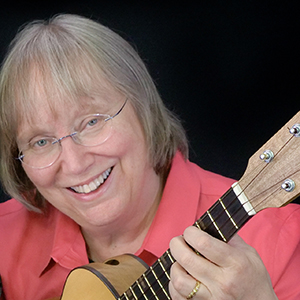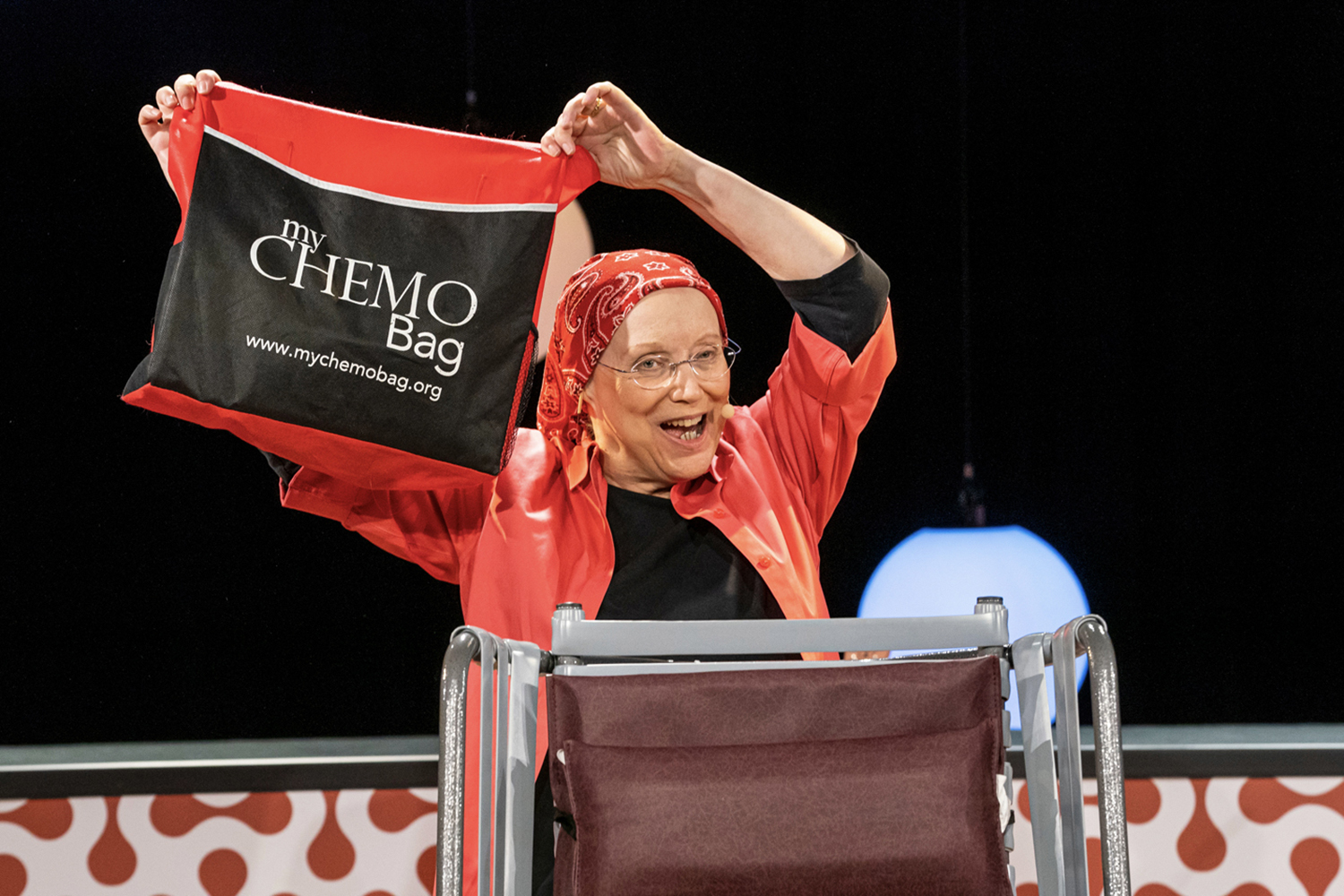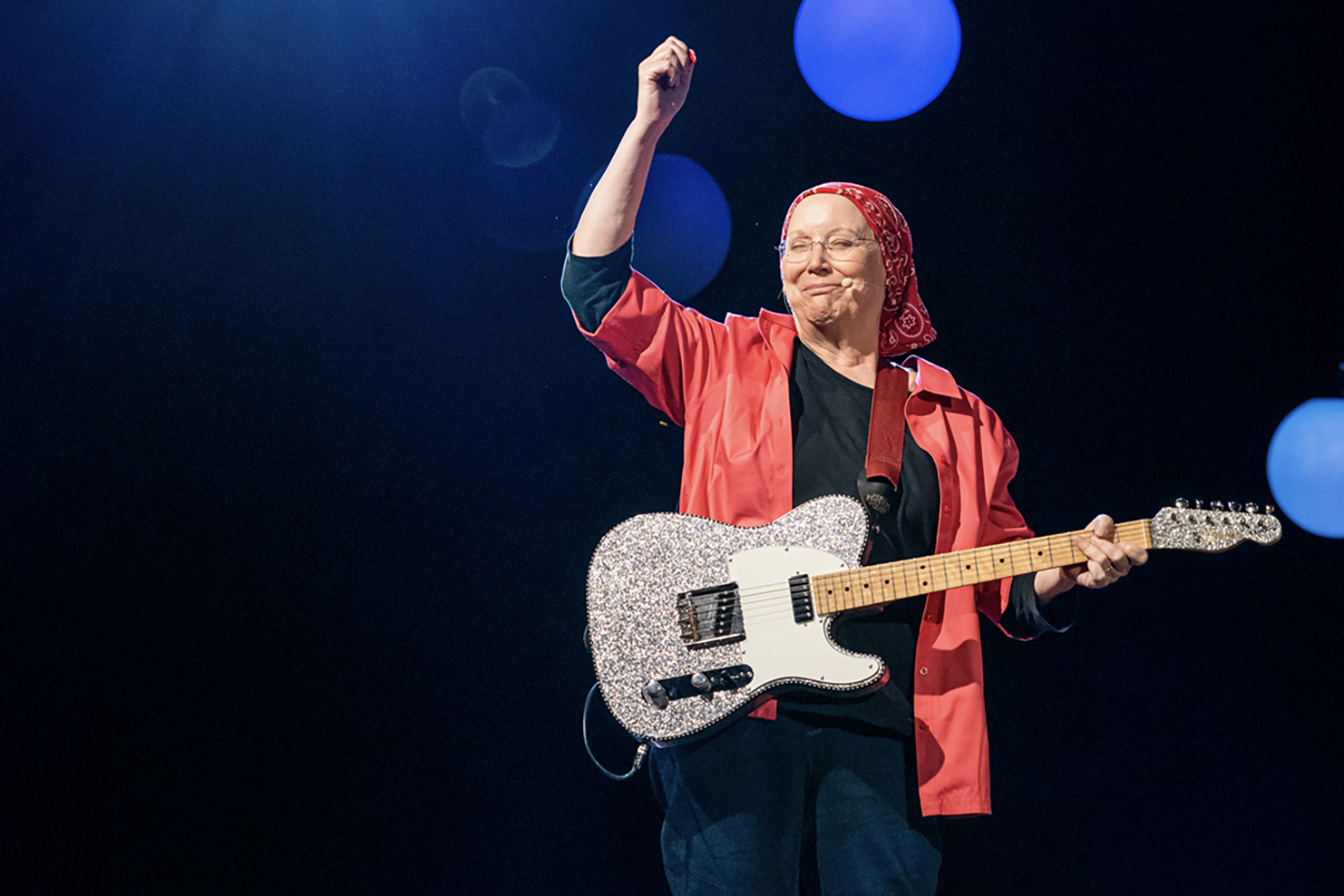
Marcy Marxer Photo courtesy of Marcy Marxer
MANY CREATIVE WORKS about people with cancer are designed to evoke tears, like the hit film adaptations The Fault in Our Stars and A Walk to Remember. But not All Wigged Out, a new filmed musical co-created by Grammy Award-winning musicians Marcy Marxer, who was diagnosed with breast cancer at age 58 in 2015, and her partner in life and music, Cathy Fink. Rather, the musical is wacky, comedic and, above all else, relatable for people going through cancer treatment and their caregivers.
“I wanted to make the musical not as a cathartic experience, but as a non-Hollywood view of cancer and being a patient,” Marxer says. “This is not meant as a way to manipulate an audience or tug on heartstrings or make people cry. This is meant to be helpful.”
All Wigged Out follows Marxer’s day-to-day life as she goes through cancer treatment, highlighting the lessons she learns and the humorous moments along the way. Marxer and Fink moved to Chicago in summer 2021 to rehearse the musical before performing two live shows, during which the film was shot. In the production, Marxer and Fink, who are best known for their folk and bluegrass music, play a variety of genres and instruments, including guitar, ukulele and mandolin.
A major theme in the show is how Marxer felt unprepared for how her treatment—two surgeries, 12 rounds of chemotherapy, a year of targeted therapy and five years of hormonal therapy—would impact her life. “There were surprises all along the way,” she says. She didn’t realize, for instance, that it was almost certain her hair would fall out or that her hair loss would be so rapid. Just in case she did lose her hair, Marxer visited a wig store—an experience portrayed in the production. That’s when a kind shopkeeper, played by Fink, was the first person to be direct with Marxer about the reality of hair loss and helped her find a wig. Marxer hopes that the hourlong stage production, which is available to watch online through Google Play, Amazon and other streaming services, can help prepare people who are in cancer treatment and those who will one day experience something similar.

Marcy Marxer sings about her chemotherapy experience in the musical number My Chemo Bag, one of the original songs featured in All Wigged Out. Photos courtesy of Marcy Marxer
Marxer recently spoke with Cancer Today about creating All Wigged Out and how viewers relate to her experience with cancer, even if they don’t have it themselves.
CT: Who was the audience you had in mind when writing the musical?
MARXER: Cathy and I and our friend Andy Offutt Irwin put this together as a way to help people and also entertain. When we did the first live filming, there was a young girl sitting in the front row smiling the whole time, and I thought, “What is this child thinking?” Afterwards, I talked to her, and she was smiling and blurted out, “This is my life. I’m here celebrating that. I’ve gone one whole year without being in the hospital for sickle cell disease, and this is how I wanted to have my party—by coming to this show.” She was 13, and it was lovely.
CT: What was the filming process like?
MARXER: We practiced for four hours a day, working on the script and editing it, for a month. Then, due to a lack of time, we only did two run-throughs on a stage, which was actually in a dance studio. The stage director was just finishing up the set when we were trying to do our first run-through, so I never actually got to do a walk-through on the stage. Luckily, Cathy and I are used to doing shows, so we knew we could do it.
Now we tour with the film, and then we have a panel discussion with people from that local area. We’ll get an oncologist, a physical therapist—any resources that we can. That’s a place where the local cancer organizations and support organizations for patients and caregivers can gather and speak about the things that they offer. It’s amazing the support that’s available in local communities. It’s astounding how many angels are out there in the world ready to help.
CT: A motto you had in All Wigged Out was “lower your expectations and increase your optimism.” What does that mean to you?
MARXER: It came from one particular day. I was having trouble walking for a while due to neuropathy. I would lose my balance, or I would feel like my legs would disappear and I’d just be lying on the sidewalk for a minute. I realized that what I would need to do in order to walk was to use my house as the center of a star and go out and back, then go out to another area and back, so I stayed close to home. That’s when I lowered my expectations of myself. But it was great to be outside. It was great to breathe fresh air.
CT: The musical shows how you struggled with playing music during treatment. What was it like getting back into playing?
MARXER: For a while, I couldn’t play at all. I didn’t realize that, after surgeries, I wouldn’t be able to hold an instrument. That went on through two surgeries and the recovery periods in between. Then when neuropathy set in from chemo, it was pretty quick. Within two weeks, I could start to feel it. And within four weeks, I couldn’t really touch anything.
I still wrestle with neuropathy, but it’s worse in my legs and feet than it is in my hands, so I’ve been able to play and play well. As soon as I could start touching things again, I started playing. I take jazz guitar lessons online; I got into it to just try to get my hands back, and I love it so much. I’m continuing for the fun of it.
CT: What helps you to maintain your positivity?
MARXER: Being around kids helped me out a lot. One young friend who has been taking ukulele lessons from me since he was 7 came over. He called on the phone and said, “Miss Marcy, can I help you?” It was for Boy Scouts, and he was trying to get a badge. So he came over and we laid on the couch, and he showed me all his favorite Bugs Bunny cartoons. It was really joyful.
This interview has been edited and condensed for clarity.
Cancer Today magazine is free to cancer patients, survivors and caregivers who live in the U.S. Subscribe here to receive four issues per year.





